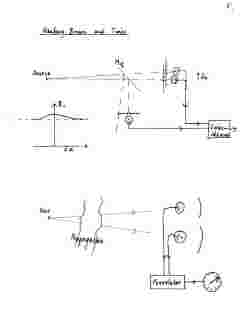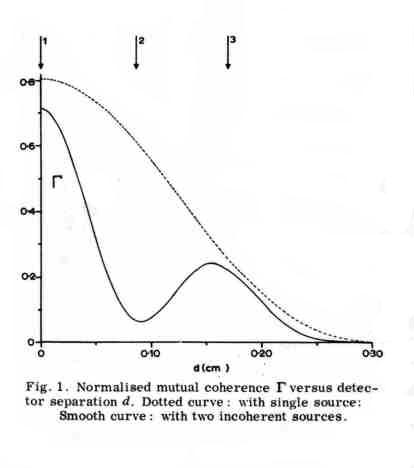|
Dedicated to Dick Sillitto on his 80th birthday.
In June 1957 I was up in Edinburgh for my job interview. I met several of my colleagues to be, but I did not meet one R. M. Sillitto, the only member of the staff whose name rang a bell. As it happened, a couple of months earlier, I had spotted a short paper, a Letter to the Editor of Nature, under his name and had asked the author for a reprint. Eventually I got the following response:
|
|
This letter marks the beginning of a friendship which, almost half a century on, is still going strong.
Soon after I had settled down to my job, I moved in to share Mr. Sillitto's (sic!, no first names at the drop of a hat) office. It was only a few years later that we acquired ‘private' offices next door to one another and we continued to live in an ‘entangled state' of co-operation both in teaching and in research, activities which were very closely coupled.
|

|
To return to the paper in question: it was about a very ‘hot' topic of the time: ‘Correlation between events in photon detectors'... The phenomenon, usually referred to as the ‘Hanbury-Twiss effect' had recently been experimentally established, but was somewhat controversial (apparently at variance with a dictum of Dirac's) and understood by only a few. Dick understood it, and I was taught about it by him.
|



|
This was the subject that kept him and several research students busy for years and that gradually made him a recognised authority in the field. A highlight of this period of his career was the Scottish Universities 10th (1969) Summer School In Physics. It was a residential event at Carberry Towers (Musselburgh), which he ran, aided and abetted by Winifred, and assisted by Alistair Rae, with incomparable secretarial skill. We had outstanding lecturers including three Nobel Laureates (to be), and a crowd of talented, enthusiastic and cheerful students from five continents. - Nobody can forget the lamb bought from a neighbouring farm and roasted by a group of students on a spit, the ‘fruit cup based mainly on strawberries from Alistair Rae's garden and adulterated by alcohol - illegal on the Church of Scotland property - and the farewell banquet at which even our American friends refrained from smoking until the Loyal Toast was over.
|
|
|
Although Dick is five years my junior I often considered him my senior partner. What I know of our University I learned from him. We swapped lecture courses; tutorials, etc. I shall always remember the ‘free for all' tutorials we organised, together with John Muir, in the lecture free last term for honours students. These were group tutorials, only for students who wished to come. They were allowed to ask any questions of substance (not ‘why did you change the notation in such and such a lecture?). We hardly ever answered a question ourselves; instead, we guided the questioner, to keep rephrasing his ‘problem' until one or another of the other students could answer it. That is how we tried to teach them to see that, more often than not, the crux of the solution of a problem lies in asking the right question phrased in the best way one can.
|

|
I am certain that we two agree that the questions about education have not changed during our active lives or since, but the answers - for better or worse - seem to be different.
P.S. Farago
|
